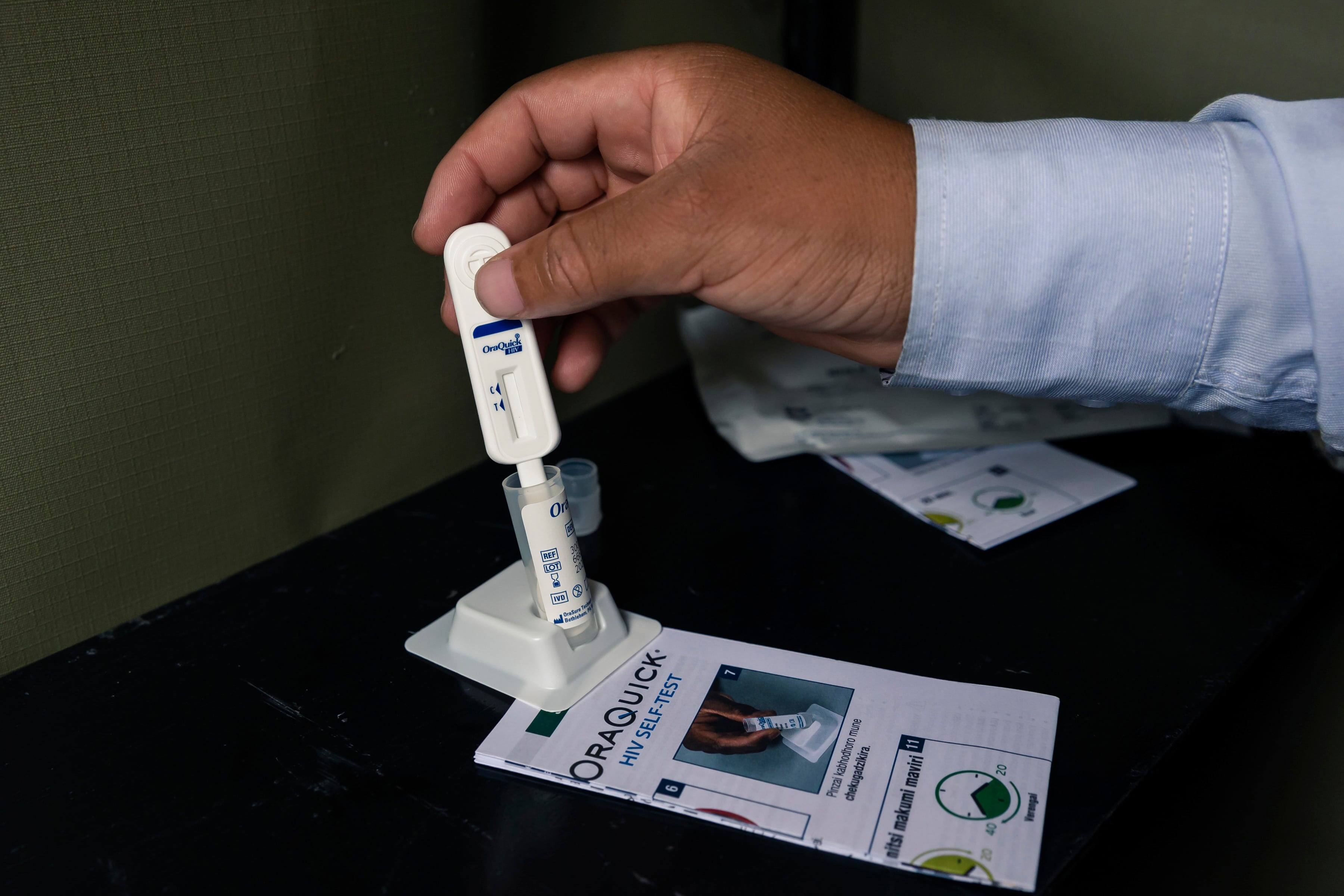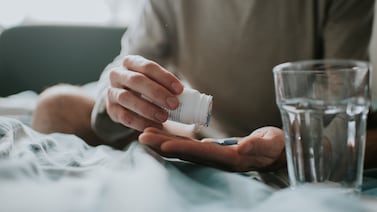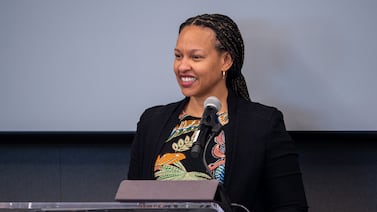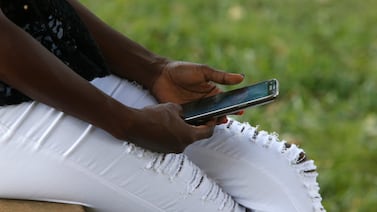Public health, explained: Sign up to receive Healthbeat’s free Atlanta newsletter here.
Federal funding for a program that used dating apps to connect people with free HIV home tests - identifying nearly 7,000 new cases since its start in 2022 - has been canceled.
The Together Take Me Home project, based at Emory University in Atlanta, has delivered almost 750,000 free home testing kits to people across the country through an easy-to-use website and integration with dating apps. The Centers for Disease Control and Prevention funded the project with about $55 million to be granted over five years, starting in 2022.
The cancellation notice said the CDC no longer has the staff to oversee the project, said Patrick Sullivan, the project’s lead scientist and professor at Emory’s Rollins School of Public Health.
About 150 employees of the CDC’s HIV prevention division were fired in April, gutting five of its 10 branches. The CDC fired around 2,400 employees as part of a restructuring under President Donald Trump’s executive order to eliminate waste in the federal government.
The CDC notified Emory in late April that funding for Together Take Me Home will end in September, two years earlier than planned.
The program has been effective in identifying and preventing HIV infection, Sullivan said.
CDC staffing cuts have also resulted in a reduction in data published about HIV in the United States. The latest data, released in late April, does not include information on HIV incidence or use of the HIV prevention drug PrEP due to a “reduction in force,” according to a message posted on the CDC website. Researchers use the data to track new cases and whether prevention efforts are working.
These are among the latest disruptions in HIV work under the new Trump administration. People working on ending mother-child transmission of HIV were also fired from the CDC, jeopardizing decades of progress. Millions in federal grants have been cut to state and local health departments, universities, and nonprofit organizations, leading community groups across the South to cut back on their testing efforts.
At-home HIV test program ‘exceeded’ expectations
The Together Take Me Home project set a goal of mailing out at least 875,000 home testing kits over the five-year period and had come close to meeting that with more than two years left on the grant.
“The initial project … really exceeded everyone’s expectations,” Sullivan said.
The project also integrated with dating apps to reach people, said Jen Hecht of Building Healthy Online Communities, a nonprofit partner in the project that has been working with dating apps on public health initiatives for 15 years.
About half of the site’s users came from dating apps, Hecht said. About a quarter of people who ordered testing kits reported testing themselves for the first time.
People liked the program because it was easy, free, and discreet, Hecht said.
“We identified that there were opportunities through the apps to reach people who’ve never tested before. And then in creating this program … we have been able to reach a huge number of people to test for the first time,” Hecht said.
The program had a particularly high reach in the South, including in Georgia, which has the second-highest rate of new HIV diagnoses in the United States, after Washington, D.C.
Testing initiative provided privacy and information
The tests, which use an oral swab of the gums, are delivered in discreet packaging.
“People in the South who, because of stigma, choose not to go into some of our AIDS service organizations or clinics could now take control and still learn their HIV status in the comfort of their home,” said Leisha McKinley-Beach, founder and CEO of the Black Public Health Academy who has worked on HIV for more than 30 years.
“They don’t have to worry about someone seeing them going into a clinic … Eliminating this program takes an option away from them,” she said. Being able to test at home means people don’t have to take time off work, she said.
The test kits also provide important information.
“If someone happens to be positive, what are your next steps, and even if someone is negative, resources for those who are on a journey to remain negative,” McKinley-Beach said.
At-home testing is valuable to people in rural areas and for those who may not want their partner to know they are testing, as in an abusive relationship, said Maximillian Boykin, an HIV advocate who works for PrEP4All.
“Taking this away makes it even harder for us to help in the HIV epidemic, and makes it even further away from the president’s promise of ending the epidemic in 2030,” Boykin said.
During his first term, Trump launched the Ending the HIV Epidemic in the U.S. initiative with a goal of cutting new infections by 90% by 2030. The initiative has steered resources to the areas with the highest rates of HIV, including DeKalb, Cobb, Gwinnett, and Fulton counties in Georgia. It has made progress, with a 12% reduction in new infections nationwide from 2018 to 2022, according to the CDC.
Together Take Me Home drew together partners like NASTAD, a nonprofit membership organization representing public health officials who work on HIV and hepatitis, and Building Healthy Online Communities to create a website in English and Spanish where it takes just a few minutes to order a kit.
The testing kits provide guidance to people about next steps if they test positive. That website will have to be taken down when the funding ends in September, Sullivan said.
The CDC recommends that all Americans be tested for HIV at least once in their lifetime, but only about a third are tested, Sullivan said.
Sullivan and Hecht said they hope other funders might step in.
“Especially for the South, where we see the majority of new HIV diagnoses, we want to provide absolutely every option available for people to be able to learn their HIV status,” McKinley-Beach said. “It’s very disheartening.”
To find out where to get an HIV test near you, visit https://locator.hiv.gov.
Rebecca Grapevine is a reporter covering public health in Atlanta for Healthbeat. Contact Rebecca at rgrapevine@healthbeat.org.






